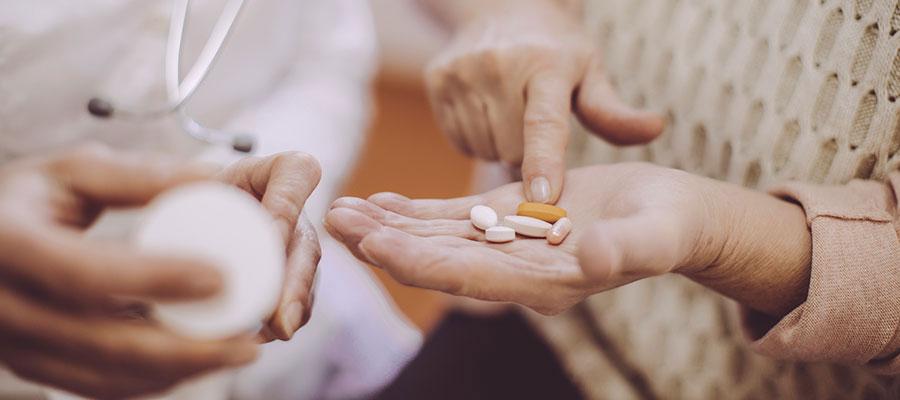Together, We Can Prevent Further Addiction and End the Opioid Epidemic

Every day, more than 130 Americans die from opioid-related drug overdoses. It’s clear that the opioid epidemic’s grip on our communities continues to be a major challenge. At the same time, we also see progress in addressing the problem.
This week, comprehensive, bipartisan legislation, the SUPPORT for Patients and Communities Act (H.R. 6), was signed into law to address the nation’s ongoing opioid crisis. For families, communities, and providers, this new law will provide needed tools and resources to better care for patients with substance use disorders and to prevent further addiction.
However, we know that the work to address this public health crisis requires collaboration across fields and communities. That’s why the American Hospital Association is working with the Office of the U.S. Surgeon General (OSG) on the Spotlight on Opioids initiative to demonstrate the power of national coordination, and to help spread the message far and wide about the many efforts taking place across the country.
The AHA and the OSG are sure of one thing: we all have a part to play in ending the opioid epidemic. You can be a part of the effort to end the crisis by taking some steps at home. To help prevent opioid misuse you can:
- Talk about the ways in which opioids can be dangerous and addictive.
- Be safe when using opioids—only take medications as prescribed, store securely, dispose of unused medication properly.
- Understand pain and that there are effective non-opioid ways to treat pain.
- Know that addiction is a disease that affects decision-making but it is treatable and recovery is possible with the right resources.
- Be prepared to reverse an opioid overdose, which often takes place at home. The opioid overdose reversing drug, naloxone, can help save a life.
Beyond these efforts, hospitals and health systems across the country have been on the front lines every day, adopting evidence-based approaches to address the opioid crisis. Last year, we created a resource toolkit, Stem the Tide: Addressing the Opioid Epidemic, to provide hospitals and health systems with the tools needed to form meaningful community partnerships. Many have established community-based behavioral health partnerships, including accelerated sharing of best practices, tools and resources. In addition, we joined the National Academy of Medicine Action Collaborative in Countering the U.S. Opioid Epidemic, and will be sharing insights, tools, and resources from this initiative.
Across the country, hospitals and health systems are:
- caring for the victims of opioid addiction, including newborns, to restore their physical health and help them break the cycle of addiction,
- educating hospital/health system and community clinicians,
- expanding substance use disorder treatment services,
- providing naloxone to first responders,
- integrating physical and behavioral health care,
- funding public education programs,
- joining with law enforcement to facilitate safe access to treatment,
- participating in drug take-back days, and much more.
The new federal law to address the opioid epidemic crossed the finish line because of the commitment of federal policymakers and providers who have seen the widespread, daily effects of the opioid crisis. While Congress failed to include a critical provision that would have allowed the responsible sharing of patients’ substance use disorder treatment information, it includes many other AHA-supported provisions, including partial repeal of the 50-year-old Medicaid law that has limited access to inpatient treatment for substance use disorders. This new law will help support hospitals’ comprehensive, evidence-based community response as we promote a culture that fully understands and works to effectively reduce opioid addiction.
More information and resources are available at www.aha.org/opioids.
By Jay Bhatt, D.O., AHA senior vice president and chief medical officer. This article was originally posted on LinkedIn.

